This article relies largely or entirely on a single source .(April 2014) |
The following is a list of notable people in Colombia who have belonged to a leftist guerrilla organization.
This article relies largely or entirely on a single source .(April 2014) |
The following is a list of notable people in Colombia who have belonged to a leftist guerrilla organization.

The Revolutionary Armed Forces of Colombia – People's Army is a Marxist–Leninist guerrilla group involved in the continuing Colombian conflict starting in 1964. The FARC-EP was officially founded in 1966 from peasant self-defense groups formed from 1948 during the "Violencia" as a peasant force promoting a political line of agrarianism and anti-imperialism. They are known to employ a variety of military tactics, in addition to more unconventional methods, including terrorism.

Pedro Antonio Marín Marín, known by his "nom de guerre" Manuel Marulanda Vélez, was the founder and main leader of the Marxist–Leninist FARC-EP. Marulanda was born in a coffee-growing region of west-central Colombia in the Quindío Department, to a peasant family politically aligned with the Liberal Party during conflicts in the 1940s and 1950s.

Guillermo León Sáenz Vargas, more commonly known by his nom de guerre Alfonso Cano, was the commander of the militant group known as Revolutionary Armed Forces of Colombia. He succeeded founder Manuel Marulanda in March 2008 and commanded the Marxist rebel group until being killed in action by the Colombian Army.
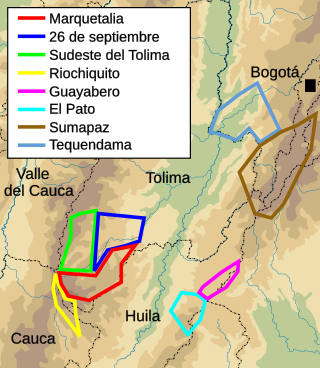
"Marquetalia Republic" was an unofficial term used to refer to one of the enclaves in rural Colombia which communist peasant guerrillas held during the aftermath of "La Violencia". Congressmen of the Colombian Conservative Party described these enclaves, including Marquetalia, as "independent republics" which needed to be brought under state control through military force. This area was eventually overrun by the National Army of Colombia in May 1964.
The Revolutionary Armed Forces of Colombia (FARC–EP) is a Marxist–Leninist revolutionary guerrilla organization based in Colombia, which is involved in the ongoing Colombian armed conflict.

Luciano Marín Arango, better known as Iván Márquez, is a Colombian guerrilla leader, member of the Revolutionary Armed Forces of Colombia (FARC), part of its secretariat higher command and advisor to the Northwestern and Caribbean blocs. He was part of the FARC negotiators that concluded a peace agreement with President Juan Manuel Santos. On 29 August 2019, Márquez abandoned the peace process and announced a renewed armed conflict with the Colombian government.
Marulanda is a Spanish and Basque surname, it is mostly used in Spain and Colombia. It may refer to:
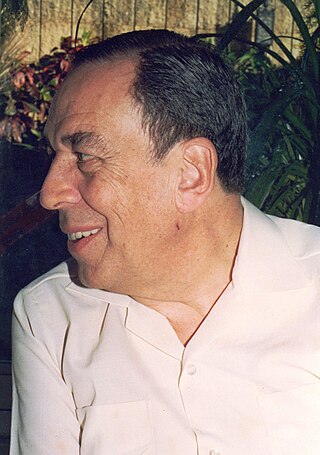
Álvaro Gómez Hurtado was a Colombian lawyer, politician, journalist and active member of the Colombian Conservative Party. Gómez was a son of the former President of Colombia, Laureano Gómez. He is mostly remembered for being one of the writers of the Colombian Constitution of 1991, for running three times for the presidency, without success, and for his murder at the hands of the Revolutionary Armed Forces of Colombia. He served separate appointments as ambassador to Switzerland, Italy, the United States and France, beginning in the 1940s.
Guerrilla movements in Colombia refers to the origins, development and actions of guerrilla movements in the Republic of Colombia. In the context of the ongoing Colombian conflict, the term 'guerrilla' is used to refer to left-wing movements, as opposed to right-wing paramilitaries.
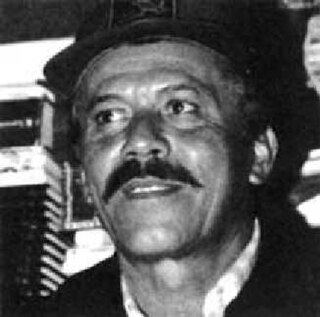
Noel Matta Matta-Guzmán, also known by his nom de guerre Efraín Guzmán, was a Colombian guerrilla leader, founding member of the Revolutionary Armed Forces of Colombia (FARC). He died of natural causes in 2002.
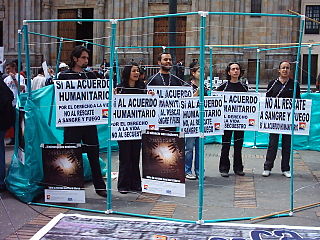
The Humanitarian Exchange or Humanitarian Accord referred to a possible accord to exchange hostages for prisoners between the Revolutionary Armed Forces of Colombia (FARC) guerrilla group and the Government of Colombia.
Jaime Alberto Parra Rodríguez was one of the FARC negotiators in the peace process with the government of Juan Manuel Santos, years before he replaced alias "Mono Jojoy" and Iván Ríos. in the Secretariat of the Revolutionary Armed Forces of Colombia (FARC) and currently participates in the Political Council of the Comunes party as an advisor for Solidarity, Human Rights and Prisoners.

Rodrigo Londoño Echeverri, most known under the nom de guerreTimoleón Jiménez and the nickname Timochenko or Timochenco, is a Colombian politician, cardiologist and former commander-in-chief of the rebel group Revolutionary Armed Forces of Colombia, currently serving as the president of its political successor Commons following the Colombian peace process.

Presidential elections were held in Colombia on 27 May 2018. As no candidate received a majority of the vote, the second round of voting was held on 17 June. Incumbent president Juan Manuel Santos was ineligible to seek a third term. Iván Duque, a senator, defeated Gustavo Petro, former mayor of Bogotá, in the second round. Duque's victory made him one of the youngest individuals elected to the presidency, aged 42. His running mate, Marta Lucía Ramírez, was the first woman elected to the vice presidency in Colombian history.
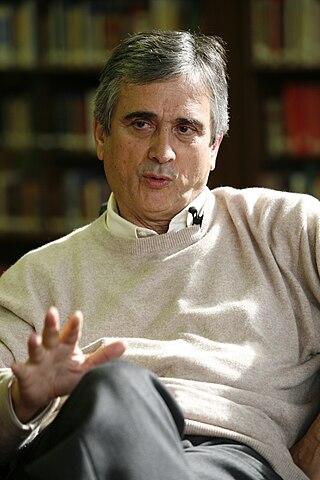
Luis Iván Marulanda Gómez is s Colombian politician and economist. He was elected senator for the Colombian Green Party for the 2018–2022 term. He was previously a member of Colombian Liberal Party, where he was elected senator for four years (1986-1990). Liberals nominated him for Vice President of Colombia in the 2006 presidential election.

FARC dissidents, also known as Carlos Patiño Front, are a group, formerly part of the Revolutionary Armed Forces of Colombia (FARC), who have refused to lay down their arms after the Colombian peace process came into effect in 2016, or resumed their insurgency afterwards. In 2018, the dissidents numbered some 2,000, to 2,500, armed combatants with an unknown number of civilian militia supporting them. The FARC dissidents have become "an increasing headache" for the Colombian armed forces, as they have to fight them, the Popular Liberation Army (EPL), the National Liberation Army (ELN), and the Clan del Golfo at the same time.
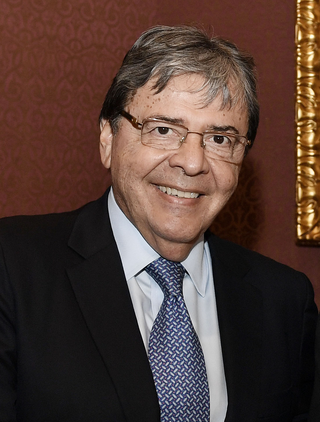
Carlos Holmes Trujillo García was a Colombian dynasty politician, diplomat, scholar, and attorney who served as minister of defense, foreign affairs, interior, and education. He also served as the mayor of Cali and as ambassador to the Organization of American States (OAS), the European Union, and a number of nations.

Juan Manuel Santos's term as the 32nd president of Colombia began with his first inauguration on August 7, 2010, and ended on August 7, 2018. Santos, a center-right leader from Bogotá, took office after a landslide victory over the leftist leader. Antanas Mockus in the 2010 presidential election. Four years later, in the 2014 presidential election, he narrowly defeated the Democratic Center candidate Óscar Iván Zuluaga to win re-election. Santos was succeeded by right-wing leader Iván Duque, who won the 2018 presidential election.